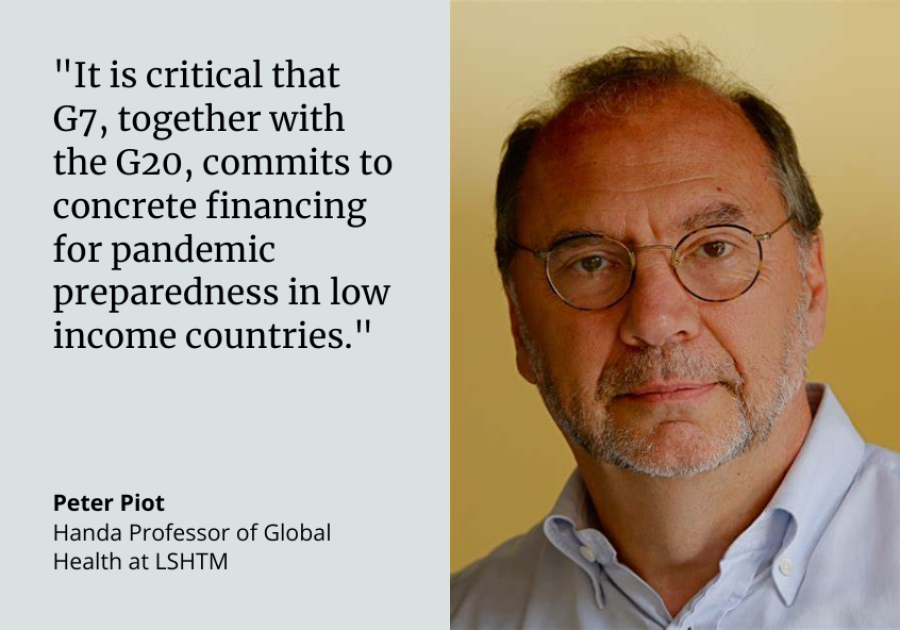Expert comment – priorities for health at the G7 summit
24 June 2022 London School of Hygiene & Tropical Medicine London School of Hygiene & Tropical Medicine https://lshtm.ac.uk/themes/custom/lshtm/images/lshtm-logo-black.png
Peter Piot quote card for G7
The Group of 7, or G7, heads of state and government will gather in Germany for the G7 Summit 2022 with the goal of ‘progress towards an equitable world’.
Germany, France, the United Kingdom, Italy, Japan, Canada and the USA make up the G7.
Measures to improve pandemic preparedness and strong alliances for a sustainable planet are set to be among the discussions at the high-profile event.
Experts from the London School of Hygiene & Tropical Medicine (LSHTM) commented on what the G7 leaders should prioritise when it comes to health issues.
Peter Piot, Handa Professor of Global Health at LSHTM, said: “I have spent the last years giving speeches titled: ‘Are we ready for the next pandemic?’
“The answer is that we are still not sufficiently prepared, despite major progress in many countries and regional bodies from the EU to the AU. Let us also not forget that the COVID-19 pandemic is far from over, and that SARS-COV -2 is likely to be with us for many years to come.
“It is critical that G7, together with the G20, commits to concrete financing for pandemic preparedness in low income countries along with much needed investments in public health institutions that can detect and respond to these viruses early.”
In the lead-up to the G7 Summit, Prof Piot spoke at the Science 7 Summit which saw science academies of the G7 countries – under the leadership of the Leopoldina, the German National Academy of Sciences – develop science-based statements relating to this year’s G7 agenda.
Anna Vassall, Professor of Health Economics and member of the Centre for Epidemic Preparedness & Response at LSHTM, said: “Vaccines and other health technologies are key to reducing the impact of future pandemics, but health service delivery remains critical too. G7 leaders must provide the resources to ensure that everyone can access essential primary health care services. This is crucial to prevent, detect and treat both endemic and emerging pandemic infectious diseases.
“I also urge the G7 leaders to invest in combined social and health support, to ensure that families globally can weather future pandemics without long term catastrophic consequences to their wellbeing.”
Dr Rosie Green, Associate Professor in Sustainability, Nutrition and Health and member of the Centre on Climate Change & Planetary Health at LSHTM, said: “Poor diets are among the leading causes of ill health globally, and the diets of citizens in the G7 countries have a disproportionate impact on global climate change and environmental degradation.
“The G7 must take the lead in demonstrating that sustainable and healthy food systems can be a reality, by investing in sustainable production systems and incentivising dietary change towards nutritious and low-impact foods.”
LSHTM's short courses provide opportunities to study specialised topics across a broad range of public and global health fields. From AMR to vaccines, travel medicine to clinical trials, and modelling to malaria, refresh your skills and join one of our short courses today.